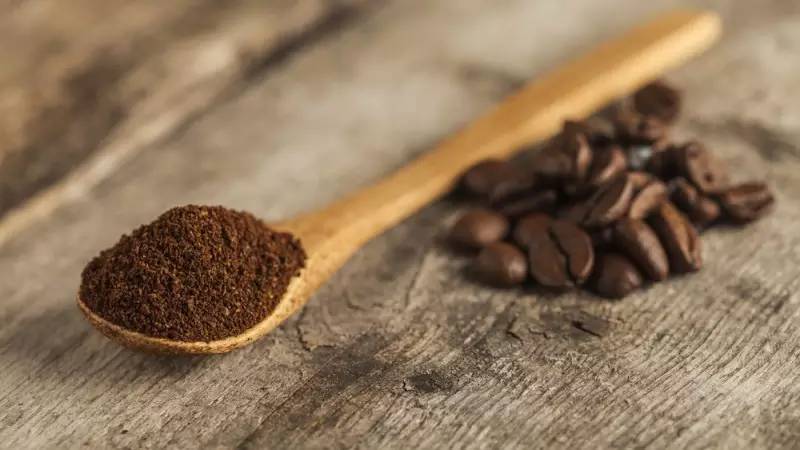The study found that 3-5 cups of coffee a day can help reduce the risk of heart disease
Professor Martin, director of the Coffee Research Institute at Vanderbilt University in the United States, said recently that coffee contains hundreds of healthy ingredients that can protect against liver damage, various cancers, asthma, heart disease and tremor paralysis.
He pointed out that drinking 4 cups of coffee a day is beneficial. People who do not drink coffee are more likely to suffer from these diseases than those who drink coffee. Nearly 20 years of research has confirmed that caffeine is an active ingredient in coffee, which can activate the central nervous system and can be used to make long-acting analgesics against drowsiness, colds, asthma and edema. The side effects are addictive insomnia, tension and elevated blood pressure.
South Korean researchers have found that drinking a few cups of coffee a day can help people avoid clogged arteries, thereby reducing the risk of heart disease, BBC reported. They studied more than 25000 men and women who underwent routine health check-ups. It was found that employees who drank the right amount of coffee every day (3-5 cups per day) were less likely to develop early symptoms of heart disease.
The results reopen the debate about whether coffee is good for the heart.
When it comes to the effects of coffee on heart health, there are always a lot of different voices. Some studies have linked coffee to heart risks, such as high cholesterol and high blood pressure, while others have suggested that coffee provides some protection for the heart. But there is no hard evidence for either voice, and the study, published in the journal Heart, only adds to the debate.
BBC: 3-5 cups of coffee a day can help reduce the risk of heart disease
BBC: 3-5 cups of coffee a day can help reduce the risk of heart disease
In this study, the researchers used medical scans to assess heart health; specifically, they had been testing subjects for any coronary artery disease. Coronary artery calcium deposition is an early symptom of coronary atherosclerosis, which can eventually lead to heart disease or stroke. The researchers looked for calcium deposits as an early clue to whether a heart attack might occur.
In the South Korean study, none of the subjects showed signs of heart disease, but more than 1/10 of the scans found calcium deposits. The comparison found that people who drank coffee every day had fewer calcium deposits in their coronary arteries than those who did not drink coffee or drank less. The subjects reported how much coffee they drank every day, while the researchers also considered other possible heart risk factors, including smoking, exercise and family history.
The authors also say that more research is needed to verify and explain this conclusion. Coffee contains caffeine and other substances, but it is not clear whether these substances are good or bad for the body. Victoria Taylor of the British Heart Foundation said: "in addition to further confirming the results, it is also necessary to take into account the possible differences in eating habits between South Korea and other countries."
So, having said so much, how much coffee should I drink every day?
In the United States, experts say daily 400mg caffeine is safe for most healthy adults.
In the UK, daily caffeine intake restrictions are not recommended (except for pregnant women). If you are a pregnant woman, you should limit your caffeine intake to 200 mg a day, the equivalent of 2 cups (mug) of instant coffee.
1 cup (mug) instant coffee = 100 mg caffeine
1 cup filtered coffee = 140 mg caffeine
1 cup of tea = 75 mg caffeine
1 cup of coke = 40 mg caffeine

Important Notice :
前街咖啡 FrontStreet Coffee has moved to new addredd:
FrontStreet Coffee Address: 315,Donghua East Road,GuangZhou
Tel:020 38364473
- Prev

Coffee is one of the most popular drinks in the world, changing American culture.
Coffee is not only one of the most popular drinks in the world, but also one of the most traded products in the world. I've been writing a book about coffee recently, but I've been hesitant: I don't know how many coffee consumers really want to know about the things behind coffee. Many of us like to savor the taste and feeling of a cup of hot Scotch coffee, not to mention the taste.
- Next

The Health Preservation of Coffee from the Angle of traditional Chinese Medicine
From the perspective of traditional Chinese medicine, there are 15 health-preserving functions of coffee: 1 refreshing, brain-waking, caffeine, aromatic alcohol, which can easily pass through the brain-blood barrier, stimulate the central meridian, promote brain activity, make the mind more clear, respond lively and sensitive, think well, concentrate, and improve work efficiency; can stimulate the cerebral cortex, promote sensation, judgment and enhance memory ability. 2 strong muscles and bones, benefit
Related
- Unexpected! Ruixing Telunsu lattes use a smoothie machine to foam milk?!
- % Arabia's first store in Henan opens into the village?! Netizen: Thought it was P's
- Does an authentic standard mocha coffee recipe use chocolate sauce or powder? Mocha Latte/Dirty Coffee/Salty Mocha Coffee Recipe Share!
- What is the difference between Vietnam egg coffee and Norway egg coffee? Hand-brewed single product coffee filter paper filter cloth filter flat solution!
- What is the difference between sun-cured and honey-treated coffee? What are the differences in the flavor characteristics of sun-honey coffee?
- How to make Italian latte! How much milk does a standard latte use/what should the ratio of coffee to milk be?
- How to make butter American/butter latte/butter Dirty coffee? Is hand-brewed coffee good with butter?
- Is Dirty the cold version of Australian White? What is the difference between dirty coffee/decent coffee and Australian white espresso?
- Relationship between brewing time and coffee extraction parameters How to make the brewing time fall to 2 minutes?
- Got entangled?! Lucky opens a new store, Mixue Ice City, and pursues it as a neighbor!

